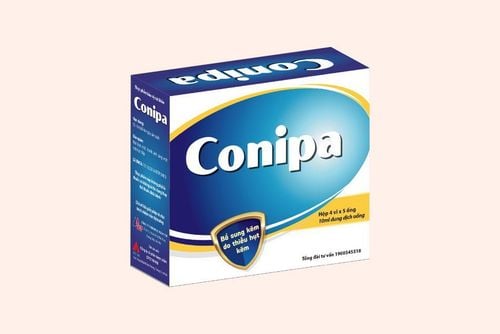This is an automatically translated article.
Many parents worry that a 21-month-old baby weighing 10 kg is malnourished? Please read this article to find the answer.
1. How much does a 21-month-old baby weigh?
According to statistics of the World Health Organization, a 21-month-old girl has an average weight of 10.9 kg. Boys of the same age had an average weight of 11.5 kg. The mean is in the 50th percentile, which means that 50% of the 21-month-olds weigh less and the remaining 50% weigh more than the mean.
Thus, a 21-month-old baby weighing 10 kg does not reach the average weight. However, with this weight, the child is not considered malnourished. Malnourished children often weigh less than the 5th percentile, corresponding to 9.5 kg in boys and 9 kg in girls. Assessing a child for malnutrition requires a combination of many other factors, in addition to weight alone.

Bé 21 tháng nặng 10 kg là không đạt mức cân nặng trung bình
2. Developmental milestones for a 21-month-old baby
Some other developmental milestones for 21-month-old babies include:
Mobility. Most 21-month-olds can run, squat, and throw a ball with their hands. They can also follow more complex movements that require the coordination of many steps. Language. A 21-month-old baby can know about 50 words or more and can put two words together to make a phrase. Teethe. The second molar in your child's lower jaw may be erupting, causing some discomfort when it comes to teething. Although experts recommend that children from 27 to 32 months old can sit on the potty on their own when using the toilet, parents can train their children to get used to it right from this age. Some 21-month-olds are already showing signs of being ready for potty training, but be careful and don't pressure them.
3. Some foods help children gain weight
Dairy products: it is advisable to add dairy products such as yogurt to a child's diet after one year of age. Yogurt provides nutritious fats and calories that help your baby gain healthy weight. In addition, it also improves the functioning of the digestive system, increases immunity and helps cure stomach ailments. Parents can use yogurt to make smoothies or eat with a variety of fruits to stimulate children's taste buds. Canned milk, butter, cheese, etc., are also reasonable choices for babies after 21 months of age. Butter and cheese make food fun for toddlers and the amount of fat needed for healthy weight gain. Add a little butter or a slice of cheese to enhance the flavor of dishes. A 21-month-old baby should be given at least 2 glasses of milk a day. Milk can be made fresh by adding dried fruit or whole grains. Eating too much or too little dairy products must be considered, as too much or too little can be unhealthy for a child. If your child is lactose intolerant or has digestive problems after consuming dairy products, consult your pediatrician.

Bổ sung các sản phẩm từ sữa giúp trẻ 21 tháng tuổi tăng cân và phát triển khỏe mạnh
Eggs: this is a good source of this protein that should be introduced to a 21-month-old baby to gain weight. Eggs are rich in saturated fat, protein, vitamins and minerals; You can make many delicious dishes with eggs. It is important to check for allergies and buy good quality, clean farm eggs to avoid health problems. Dried fruits and nuts: Almonds, walnuts, apricots, cashews, raisins and nuts such as sesame, pumpkin, flaxseed, ... work to provide adequate nutrients to children gain weight. They can be added to food in many interesting ways. Puree nuts and add to your baby's milk or sprinkle flour on top of cereal. Peanut butter or almond milk are favorite treats for many kids. Almond milk is the ideal substitute for children who cannot drink cow's milk due to a milk allergy or lactose intolerance. Avocado: A rich source of vitamins B6, E, C, K, folate, copper, fiber and pantothenic acid, and also high in fat, avocado is a commonly added ingredient to dishes. You can even make nutritious buttermilk or smoothies for kids. Chicken: Chicken is an affordable, easy-to-digest, and affordable source of protein. Chicken helps build muscle and, as a result, children can gain healthy weight. Chicken is an option to diversify menu items Fruits and vegetables: Rich in natural sugars, essential vitamins and immune-building minerals, tropical fruits and vegetables are the must be included in every child's diet. Fruits such as papaya, mango and pineapple are reasonable choices for children. Toss steamed vegetables in some butter or mix with a colorful fruit salad for your baby to eat at weaning time. Banana: This fruit is rich in potassium, Vitamin C, Vitamin B6 and carbohydrates. It is also high in calories, which makes bananas a great food for babies to eat to gain weight. Mash bananas and add them to smoothies or milk to stimulate your baby's taste buds. Sweet Potatoes: Sweet potatoes are easy to boil and mash. They are delicious, nutritious, easy to digest and healthy. Sweet potatoes are rich in vitamin A, vitamin C, vitamin B6, copper, phosphorus, potassium and manganese - the best nutrients to help children gain weight.
Cases of children with prolonged anorexia, malabsorption, and growth retardation. In addition to dietary supplements, parents can give their children support foods containing essential vitamins and micro-minerals such as zinc, lysine, chromium, selenium, vitamin B... nutritional needs in children. At the same time, these essential vitamins also support digestion, enhance nutrient absorption, help improve anorexia, and help children eat well.
Please regularly visit Vinmec.com website and update useful information to take care of your baby and family.













